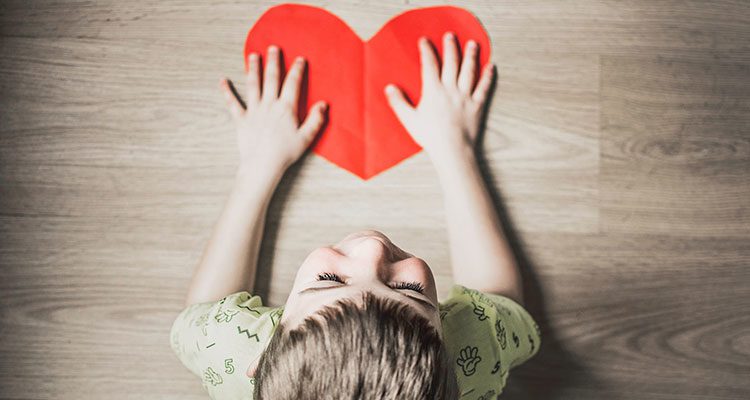The late great Irish apologist, C.S. Lewis, through MERE CHRISTIANITY,1 sought to convince its readers that his Christian Faith was the most rationale of all spiritual belief systems. He constructed the books’ chapters to contain ideas that progressively build upon each other and that reach a grand conclusion. In the beginning, while building a basic argumentative foundation, he wrote:
[P]leasure, money, power, and safety are all, as far as they go, good things. The badness consists in pursuing them by the wrong method, or in the wrong way, or too much . . . [W]ickedness, when you examine it, turns out to be the pursuit of some good in the wrong way. [G]oodness is, so to speak, itself: badness is only spoiled goodness. And there must be something good first before it can be spoiled.
As I thought about this Lewis precept, I began to see how it applies to the process we call an adoption. Does it apply? Is an Adoption A Good Thing . . .something morally right; virtuous, desirable, enjoyable, beneficial?
I say YES! Why? Well, because–
- Increasing the number of members in a family through the legal and emotional process called adoption is a treasured blessing to many adults who cannot conceive a baby, or; feel spiritually led to be a loving parent to children who do not have healthy parents.
- Adoption saves many children from unhealthy, dangerous circumstances.
- Adoption creates family bonds– not from genetic relationships but psychological ones, which over time has become understood as a connection, as, or more important than genetics only.
- A parent’s decision to place a child with another through adoption is usually an incredibly selfless, courageous act. It is an honorable thing to do because it’s a decision focused on the child’s welfare, not the parent’s natural instincts/feelings.
- Considering what Mr. Lewis called Law of Human Nature, adoption can be a deeply spiritual, life affirming, human-caring decision because deep down it feel’s right to sacrifice for another person even if you did not give birth to him or her.
BUT, can an adoptions become something bad . . . something unwelcome, unpleasant, offensive, harmful? Consider these truths:
- It can produce sadness– a parent may think she’s a bad person because she cannot or chose not to raise my offspring. Depression is very common. Even if the decision makes objective sense and is beneficial to the child, the parent still feels dejected.
- It inflicts unseen injury– when a child is separated from his/her mother (after growing in her womb for months, hearing her voice), the child’s spirit senses the separation. There is some level of fundamental, human, even spiritual, loss. This is why adopted children are, in a way, like an abused or neglected child–they’ve experienced some level of trauma. That child needs healing. That child needs more affection and reassurance . . . apparent love.
- Both genetic parents AND prospective adoptive parents are exploited and treated like a commodity. The adoption industry, as some refer to it, preys on vulnerable pregnant women to strong-arm them into placement. Genetic parents take advantage of desperate adoptive parents through emotional blackmail– e.g., give me what I want, whenever I want it, as much as I want, because I’m giving you a child! If you can’t do this for me, maybe there’s someone else out there who will?
- Many people criticize adoption because they perceive it to be a money-driven project. That’s because it’s sometimes true– some placements have been money-driven (e.g., the cost for some children is less than others2, mothers are paid-off to place their child (though it clearly fed her addiction habits), placing entities’ fees are equal to the price of a new Rolls-Royce, have no payment plans and, cater only to wealthy clients.
- An adoption does not assure happiness. Adoptive parents, or their families, are not perfect people. Adoptive parents divorce. Adopted children act-out. In addition to the human condition we all face, adoptive families have unique challenges (e.g., the adopted child’s identity, acceptance, etc.).
So these are examples of how an adoption, a good thing, can be corrupted. Even so, let’s not be cynics. Let us always try to promote the goodness of adoption by:
a.) AFFIRM parents, verbally and in writing, publically and privately, so that bio parents accept the notion that adoption, though usually emotionally hard, is an honorable decision, one that brings honor to them;
b.) BE sensitive to, and proactive with, a mother’s (father’s, grandparent’s) physical and psychological condition, and be willing to help her through the process, even if it means an adoptive parent has to facilitate a few visits between bio parent and child. If you are proactive, this could help avoid a mother thinking you only showed her attention before birth because you wanted her baby. (Of course, these are general suggestions. I only know too well that every circumstance has its own risks. Sometimes a mother (father and/or grandparent) is too unhealthy to take the kind of actions suggested here or, in which to expect a healthy relationship, which leads to the next suggestion . . .);
c.) KNOW your own personal boundaries and tactfully enforce them– do not allow yourself to be emotionally blackmailed. Be willing to say NO (agree not to perpetuate the corruption) even if it may mean separating from a mother and an opportunity, and;
d.) UNDERSTAND that for many adoptions, its not merely a transaction, it’s the beginning of a relationship with a pregnant woman you may not know well, her child, perhaps their family, the child’s father, and perhaps his family. Relationships are dear to us but they are also the hardest challenges ever. Find a competent, holistic adoption team to guide you. Get yourself emotionally, spiritually ready with lots of prayer, and introspection. Resolve any accumulated and limiting emotional baggage or head trash through counseling/therapy. Remember relationships are messy but a good one is worth the cost. We are called to give love and receive love. Love necessarily includes sacrifice and freedom. Adoption– by its core goodness– is love!
What do you think? Please share your comments and suggestions in the comment section below.
Sources:
1. Lewis, C.S., MERE CHRISTIANITY, 1952, HarperCollins, 2001, Chpt 2, pgs 43-44.
2. https://www.npr.org/2013/06/27/195967886/six-words-black-babies-cost-less-to-adopt;
https://www.theatlantic.com/sexes/archive/2013/07/the-problem-with-saying-black-babies-cost-less-to-adopt/277452/;
https://madamenoire.com/284096/black-babies-are-the-least-expensive-to-adopt-in-the-u-s/.



